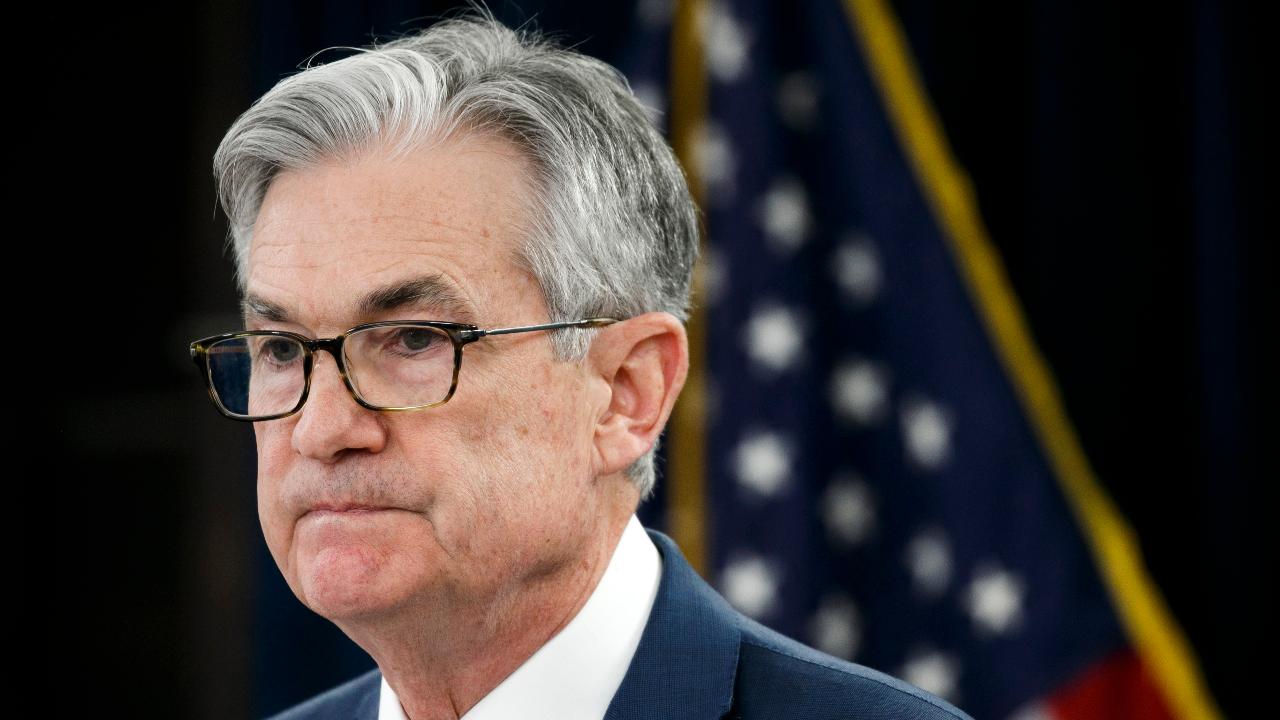Fed's Powell warns Congress that US deficit on 'unsustainable' path
The US deficit soared to $1.9T for the first eight months of the fiscal year, the Congressional Budget Office said
Federal Reserve Chairman Jerome Powell warned Congress during his semi-annual testimony that the U.S. budget deficit, which is expected to hit $3.7 trillion this year, is on an "unsustainable path."
FED WARNS ECONOMIC DAMAGE FROM CORONAVIRUS PANDEMIC COULD BE 'QUITE PERSISTENT'
"The United States federal budget has been on an unsustainable path for years now," Powell said Tuesday on the first of his two-day testimony. "And that just means the debt is growing faster than the economy, so debt-to-GDP is rising. That is, by definition, unsustainable."
The U.S. deficit soared to $1.9 trillion for the first eight months of the fiscal year, the Congressional Budget Office said. In May, the gap between what the government spent and what it collected hit $424 billion, more than twice the level it was at one year ago. The nonpartisan agency estimated that revenue in May totaled $175 billion — down $58 billion from last year, the result of a decline in wages and overall economic activity.
CONGRESS HAS FUNNELED TRILLIONS TO CORONAVIRUS RELIEF. WHERE IS THAT MONEY GOING?
The deficit for fiscal 2020 is expected to soar to $3.7 trillion, a record. The current record for a fiscal year deficit is $1.41 trillion, set in 2009.
Over time, if the federal government does not curtail spending, the tax dollars of future generations will go toward servicing debt, Powell said.
"Every generation is entitled to spend what it wants to spend on the things it thinks it needs, but it really ought to pay for them, in some sense, rather than passing the bills onto the kids," he said.
FED'S POWELL WARNS 'SIGNIFICANT' NUMBER OF AMERICANS COULD REMAIN UNEMPLOYED AFTER VIRUS RECOVERY
In February, before the virus gained a foothold in the U.S., Powell told Congress that it would be a good time to start trimming the budget deficit.
But on Tuesday, he suggested lawmakers should not prioritize reducing the deficit, saying the unprecedented amount of spending has been necessary to protect the U.S. economy from the coronavirus pandemic and related shutdown.
"The time to work on that hard is when the economy is strong, unemployment is low, there’s growth," he said. "That’s when you want to work on it. Those concerns are always going to be there, but I wouldn't prioritize them at a time like this, when the spending is giving us a better economy moving forward, which will really help service the debt."
Congress has already approved three massive stimulus packages totaling nearly $3 trillion to offset the economic pain triggered by the virus outbreak. That includes the $2.2 trillion CARES Act signed into law at the end of March. In the span of three months, U.S. unemployment surged from a 50-year low to an 80-year high, as more than 44 million Americans lost their jobs.

